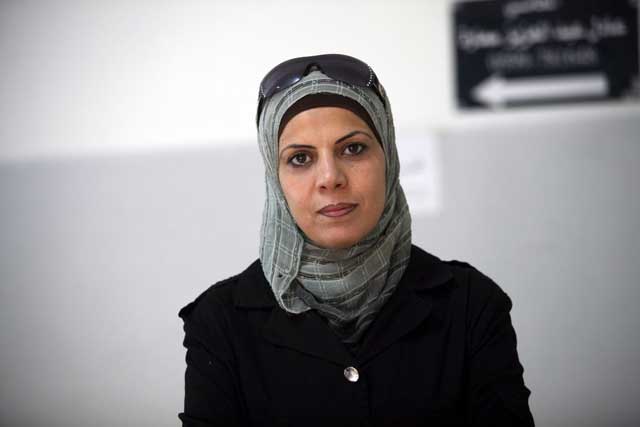Woman who wore a suicide bomb takes up fight for Middle East peace

Shifa al-Qudsi stood in the dark corner of a room while a young man from the Al-Aqsa Brigade checked the suicide vest rigged to her body to make sure the explosive charge was correctly connected. "All you have to do is press the button," he said, before stressing the importance of ensuring that she produces her martyr's will in front of a video camera.
"It was the hardest, cruellest moment of my life," Ms Qudsi recalls. "I did what was asked, and I made my will trying to explain to my six-year-old daughter and my parents what I was doing. I also sent a message to the Israelis and the outside world that I was a freedom fighter and not a terrorist."
The 24-year-old beauty technician was being sent from her home in the West Bank town of Tulkarem to blow up a supermarket in the nearby Israeli town of Netanya. In the bitter hatred spawned by years of savage violence between Israelis and Palestinians, she had convinced herself her action was a justified response to the brutality inflicted on her people.
Ms Qudsi was arrested in a dawn raid at her home in April 2002 before she could carry out her mission, betrayed, she believes, by an informer within the Palestinian ranks. She was convicted and served a six-year jail sentence, but since her release in January she is following a very different path. She is now one of the "Combatants for Peace".
The Palestinian woman, now 30, is still a nationalist but is doing what she can to break the cycle of violence as a member of the group of Israeli and Palestinian campaigners who favour a two-state solution to the Middle East problem.
Combatants for Peace was started in secret in 2005 by a handful of Palestinians and Israelis who had fought on opposing sides. It went public the next year and has grown to more than 150 members who give lectures to promote their new-found co-operation as a model for peace.
"We have found a common ground for people who literally tried to kill each other," said one of the group's founders, Yonatan Shapira, a former Israeli air force officer. Sulaiman al-Hamri, a former Fatah fighter, agreed: "We are motivated to talk to each other because we do not see any other solution."
It was one of Ms Qudsi's Israeli jailers who helped to change her mindset from violence to peace during her imprisonment, a period in which she saw her daughter just three times. "[This woman] had lost a relative in a suicide bombing, but she actually said to me, 'I know you and I are not enemies. We are killing your people as well'."
It was hardly surprising, says Ms Qudsi, that she became involved in the armed struggle. Two of her cousins, aged 14 and 17, were killed by soldiers during protests and her brother Mahmoud, 16, was sentenced to 18 years in jail for planning his own suicide attack four months before her attempt. "Israel destroyed our cities, I knew every inch of Netanya and I wanted to destroy it," she says. "Israel was arrogant and I thought our operation would hurt that arrogance. I am not a bloodthirsty person, I cannot kill a chicken. But the Palestinians were angry, I was angry. It was an eye for an eye."
Ms Qudsi recalls how harrowing it was to say goodbye to her daughter before her intended suicide attack. She was bringing up the girl by herself, after getting divorced from her husband.
"I talked to my daughter, she was just six at the time. I said that I would be going to Paradise. I said I was doing this for her and the children of Palestine. But she kept crying and saying, 'Do not do this, stay with me, nobody will take care of me if you go away'," Ms Qudsi says.
She discovered that her suicide attack was to be part of a two-pronged operation with another bomber detonating a device aimed at the emergency services who would rush to the scene of her first bombing.
The Israelis appeared to have quite detailed information about the plot. A week later the would-be second bomber was shot dead and three other members of the cell were captured.
"I try to stop myself from thinking about that day," she says. "Our house was raided. I was blindfolded and shackled." She served her sentence at Hadarim jail, near Netanya. "The conditions were very bad. There were cockroaches and other insects; I was in isolation, the prison authorities were very harsh." She even went on hunger strike in an attempt to improve her conditions.
Ms Qudsi has returned to work in the beauty parlour and resumed her studies, completing her high school exams and starting to learn Hebrew and English.
Despite her work with "Combatants for Peace", she still has doubts whether her non-violent strategy will be successful. "I admire the struggle of Mahatma Gandhi, but the Israelis are also using violence, and they haven't changed," she says. "But what I do know now is that only God is allowed to take human lives."
Join our commenting forum
Join thought-provoking conversations, follow other Independent readers and see their replies
Comments
Bookmark popover
Removed from bookmarks